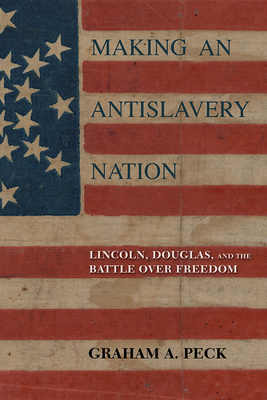Expedite your nonfiction book discovery process with Readara interviews, summaries and recommendations, Broaden your knowledge and gain insights from leading experts and scholars
In-depth, hour-long interviews with notable nonfiction authors, Gain new perspectives and ideas from the writer’s expertise and research, Valuable resource for readers and researchers
Optimize your book discovery process, Four-to eight-page summaries prepared by subject matter experts, Quickly review the book’s central messages and range of content
Books are handpicked covering a wide range of important categories and topics, Selected authors are subject experts, field professionals, or distinguished academics
Our editorial team includes books offering insights, unique views and researched-narratives in categories, Trade shows and book fairs, Book signings and in person author talks,Webinars and online events
Connect with editors and designers,Discover PR & marketing services providers, Source printers and related service providers

Making an Antislavery Nation: Lincoln, Douglas, and the Battle Over Freedom
History > United States - Civil War Period (1850-1877)
- University of Illinois Press
- Paperback
- 9780252085567
- 9 X 6 X 0.9 inches
- 0.95 pounds
- History > United States - Civil War Period (1850-1877)
- (Single Author) Asian American
- English
Readara.com
Book Description
This sweeping narrative presents an original and compelling explanation for the triumph of the antislavery movement in the United States prior to the Civil War. Abraham Lincoln's election as the first antislavery president was hardly preordained. From the country's inception, Americans had struggled to define slavery's relationship to freedom. Most Northerners supported abolition in the North but condoned slavery in the South, while most Southerners denounced abolition and asserted slavery's compatibility with whites' freedom. On this massive political fault line hinged the fate of the nation.
Graham A. Peck meticulously traces the conflict over slavery in Illinois from the Northwest Ordinance in 1787 to Lincoln's defeat of his archrival Stephen A. Douglas in the 1860 election. Douglas's attempt in 1854 to persuade Northerners that slavery and freedom had equal national standing stirred a political earthquake that brought Lincoln to the White House. Yet Lincoln's framing of the antislavery movement as a conservative return to the country's founding principles masked what was in fact a radical and unprecedented antislavery nationalism. It justified slavery's destruction but triggered the Civil War.
Presenting pathbreaking interpretations of Lincoln, Douglas, and the Civil War's origins, Making an Antislavery Nation shows how battles over slavery paved the way for freedom's triumph in America.
Author Bio
I am the Wepner Distinguished Professor of Lincoln Studies at the University of Illinois at Springfield. My scholarship has focused on antebellum Illinois, and particularly on the careers of Abraham Lincoln and Stephen A. Douglas. I have published three articles on Lincoln and Douglas in the Journal of the Abraham Lincoln Association, an article on the early Illinois Republican Party in the Journal of Illinois History, and a chapter on the antebellum party system in Practicing Democracy (2015). My book, Making an Antislavery Nation: Lincoln, Douglas, and the Battle over Freedom, published by the University of Illinois Press in the fall of 2017, received the 2018 Russell P. Strange Memorial Book of the Year Award from the Illinois State Historical Society and was a finalist for the 2018 Gilder Lehrman Lincoln Prize.
I have also written, directed, and produced Stephen A. Douglas and the Fate of American Democracy, a feature-length biographic film of Douglas that is installed as a permanent exhibit at the Douglas Tomb State Historic Site in Chicago, and in 2016 was broadcast by WTTW, Chicago's leading PBS station. The film features performances by nationally distinguished Douglas and Lincoln reenactors, interviews with five historians of the Civil War, and hundreds of nineteenth-century images, including photographs of rare, archival documents from the Douglas Papers at the University of Chicago Special Collections Research Center and the Abraham Lincoln Presidential Library & Museum.
I am a Californian by birth, and a first-generation American, raised by parents who immigrated from England in the early 1960s. I received my B.A. in History from California State University, Hayward (now CSU East Bay) before journeying to the land of Lincoln, where I earned my M.A. and Ph.D. in American History from Northwestern University. I spent a year at Rhodes College in Memphis and seventeen years at Saint Xavier University in Chicago before coming to UIS in 2019. I live in Springfield with my wife and two daughters, and with echoes of Lincoln and American history everywhere present.
Research Interests
United States History to 1877, United States History from 1877, Illinois History, Historical Methods
Source: University of Illinois Springfield
Videos






Community reviews
No Community reviews

